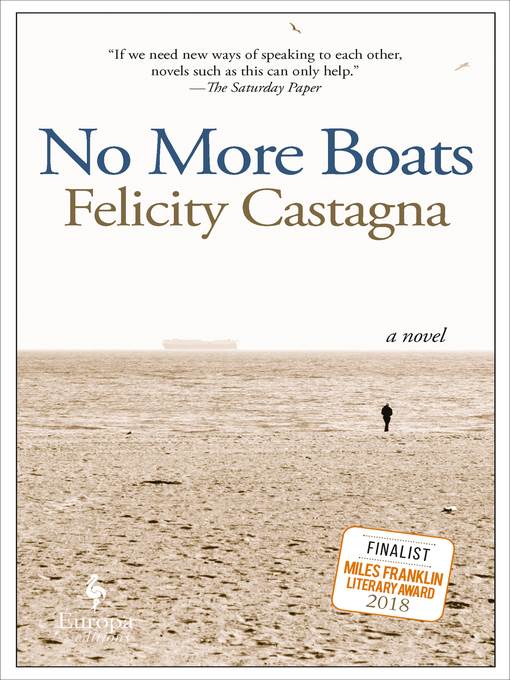
No More Boats
A Novel
کتاب های مرتبط
- اطلاعات
- نقد و بررسی
- دیدگاه کاربران
نقد و بررسی

March 25, 2019
In her timely and powerful novel, Castagna (Small Indiscretions) successfully delves into issues of immigration, urban development, and xenophobia. Readers follow the story of Italian immigrant Antonio Martone in the Sydney suburbs along with his wife, Rose, and their two grown children, Francis and Clare. The narrative is set against the backdrop of an Australia deeply divided over the Tampa Affair: in August of 2001, Prime Minister John Howard’s government refused permission for the Norwegian freighter, MV Tampa, carrying 433 rescued refugees, to enter Australian waters, triggering a massive controversy. The story opens in 1967 with a flashback to new immigrant Antonio’s happier days building his first home, but immediately hints at doomsdaylike changes to come. As Castagna writes, “He is not yet the Antonio Martone” whose “own existential crisis coincides with that of a nation.” From there, the story jumps to 2001 and into the various perspectives of Antonio’s grown son, daughter, and wife. Injured in a construction accident caused by untrained migrant workers, Antonio struggles with his newfound hatred of recent immigrants, eventually committing an act that makes him the unintended poster child for the anti-immigration movement. This is a haunting and compassionate consideration of the question of who can and cannot come into a country.

February 1, 2019
An Italian immigrant to Australia becomes more native than the natives, to unhappy ends.When we meet him at the outset of Sydney-based novelist and teacher Castagna's slender but rich story, Antonio Martone is "not yet the Antonio Martone who becomes so famous for a brief moment in history," a spasm of protectivist protest against those who are arriving after him, in this case from a Norwegian container ship that is carrying a load of 438 refugees. Antonio has been struggling all his life to make a home far from poor, landslide-prone Calabria, so much so that when his daughter, Clare, shows him a class project, a collage of Italy, he protests, "We're Australian. I'm Australian." So effective is his identification with his new country that no one really blinks when, grieving at the death of a friend and fellow immigrant, he begins to pass his hours with the nationalists and skinheads in the neighborhood. His wife and children are puzzled but busy with lives of their own and certainly unable to predict the course that Antonio's version of Australianness will take. Meanwhile, Clare, dissatisfied with her job as a bookstore clerk but not sure what else awaits her, passes her time with a former student, a Vietnamese immigrant, who, pondering the fates of the 438 newcomers, says, "You know my community, we were refugees too. But, you know, not like them, as my mother would say." Quietly, and without ever making much of a fuss in this understated character study, Castagna seems to suggest that nationalism is a kind of madness that implicates everyone it touches, and never for the better.A lightly spun story that, while never preachy or didactic, is full of timely lessons for those pondering the rise of me-first nationalism throughout the world.
COPYRIGHT(2019) Kirkus Reviews, ALL RIGHTS RESERVED.

























دیدگاه کاربران